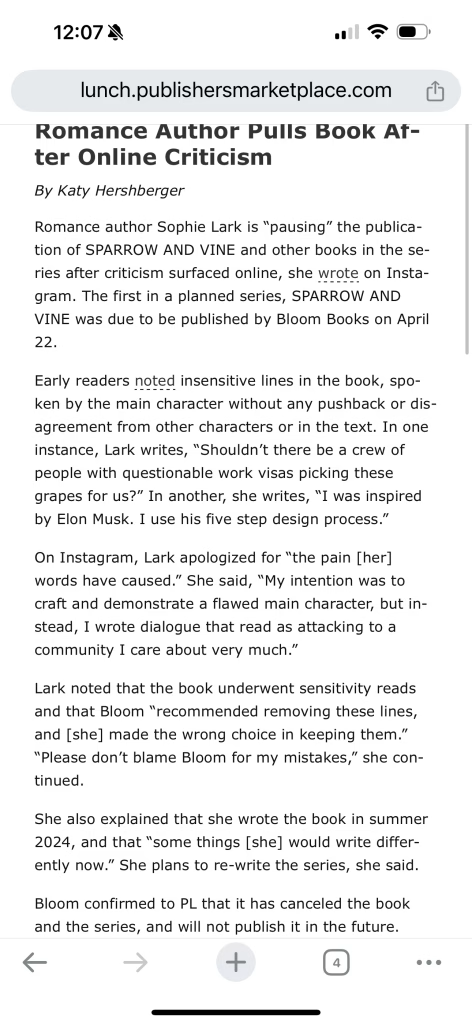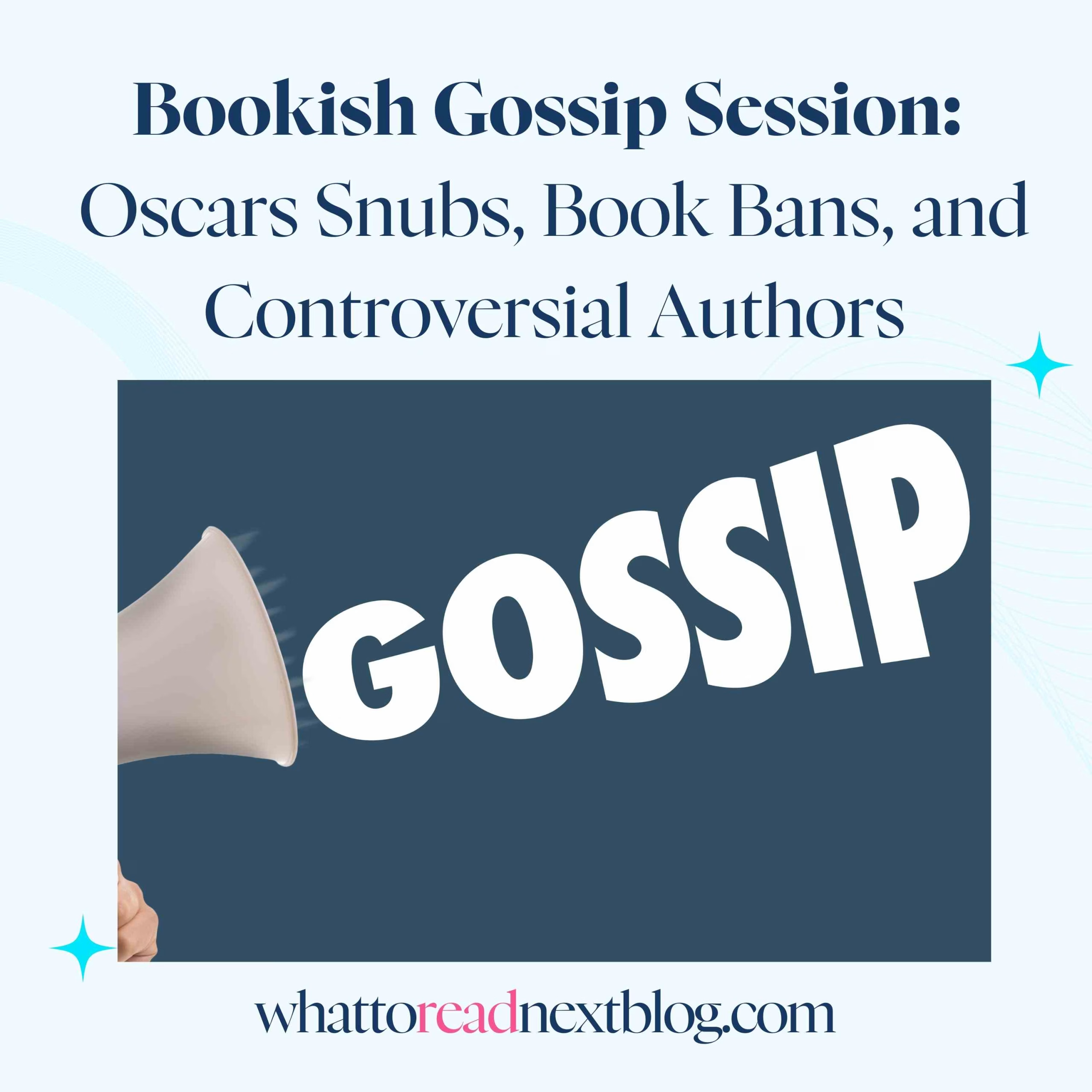Bookish Gossip: Oscars Snubs, Book Bans, and Controversial Authors
Disclosure: We are part of the Amazon Affiliate/LTK Creator programs. If you purchase a book, we will receive a small commission at no cost to you. This post may contain links to buy books, and you can read our affiliate disclosure here.
The bookish world is buzzing with drama, from the Oscars’ treatment of book-to-screen adaptations to the latest publishing industry controversies. In this edition of Bookish Gossip, we break down the major moments from the Academy Awards, discuss a Maryland Supreme Court case that could impact book bans, and take a deep dive into recent publishing scandals.
Oscars Snubs and Surprises: How Did Book Adaptations Fare?
This year’s Academy Awards featured several book-to-screen adaptations in major categories. While many films received multiple nominations, their wins were limited.
Emilia Perez: The Big Contender That Fell Short
Emilia Perez led the nominations for book-based films, receiving an impressive 13 nominations. However, it walked away with only two wins:
- Best Supporting Actress for Zoe Saldana
- Best Original Song for El Mal
Speculation suggests that behind-the-scenes controversy involving a cast member may have influenced its losses. Despite this, the film’s impact remains significant, and Saldana’s win was a standout moment.
Other Notable Adaptations
- Wicked secured two wins for Best Costume Design and Best Production Design, despite being nominated in ten categories.
- Conclave won Best Adapted Screenplay, making it the only adaptation to take home a major writing award.
- Dune: Part Two received multiple nominations and secured at least two wins.
- The indie film Anora, not based on a book, had the most significant sweep of the night.
While book adaptations did not dominate the Oscars, their presence in major categories signals a continued interest in literary-based storytelling on screen.
Subscribe to
the Newsletter
Subscribe to our newsletter and get handpicked book recommendations, the best deals on reading on a budget and exclusive reading tips right in your inbox.
Maryland’s Supreme Court Case on Book Bans
Book bans have been a growing issue, and now a case from Maryland may make its way to the Supreme Court. The lawsuit involves parents from Montgomery County who argue that requiring children to read LGBTQ+-themed books violates their religious beliefs and First Amendment rights.
The case raises larger questions about the role of public education in representing diverse perspectives while respecting personal and religious freedoms. While parents should have a say in their children’s education, should they have the right to prevent other students from accessing these materials?
If the Supreme Court takes on the case, it could have widespread implications for how books are selected in schools nationwide.
Sophie Lark’s Pulled Book: A Publishing Controversy
Author Sophie Lark faced backlash over her now-pulled book, Sparrow and Vine, after excerpts revealed problematic content. A passage that referenced undocumented immigrants in a derogatory manner sparked outrage, leading to calls for accountability.
Lark issued a statement apologizing for the content, explaining that she intended to write a flawed character but acknowledged the harm her words caused. She also revealed that her publisher, Bloom, had advised her to remove the offensive sections, but she chose to keep them.
Key takeaways from the controversy:
- The book was removed from Amazon, Goodreads, and NetGalley.
- Lark promised to revise the book before re-releasing it.
- Bloom Publishing has not issued its own statement, only sharing Lark’s apology.
This situation highlights ongoing concerns about the role of publishers in reviewing and approving sensitive content before publication.

Try Kindle Unlimited
Unlimited Reading, Unlimited Listening, Any Device
Unlimited, guilt-free reading, all for one low monthly price. Try out new authors, read some of your favorites, and never exceed your book-buying budget!
As an Amazon affiliate, I will get a small commission if you sign up for the service.
B. Celeste’s Genre Controversy: Is It Romance or Not?
Another publishing controversy involves author B. Celeste and her book Past the Broken Bridge. The book was marketed as a romance, but readers quickly pointed out that it lacked the defining characteristics of the genre—specifically, a happy ending.
Romance novels traditionally guarantee a Happily Ever After (HEA) or a Happy For Now (HFN). When a book marketed as romance does not deliver that, readers feel misled.
The Ongoing Issue of Genre Mislabeling
This is not the first time a book has blurred the lines between romance and women’s fiction. Similar complaints have been raised about contemporary novels that focus heavily on personal growth rather than the central love story. While women’s fiction is a legitimate and well-loved genre, it serves a different purpose than romance.
Authors and publishers have a responsibility to market books accurately, ensuring readers know what to expect before picking up a title.
Final Thoughts: Join the Discussion
This week’s bookish gossip session covered major moments in the literary and entertainment world. From the Oscars’ treatment of book adaptations to publishing controversies and the potential Supreme Court ruling on book bans, these topics highlight the ongoing intersection of books, media, and society.
What are your thoughts?
- Were you surprised by any of the Oscar wins or snubs?
- Should the Supreme Court have a say in school book selections?
- How do you feel about books being miscategorized as romance?

